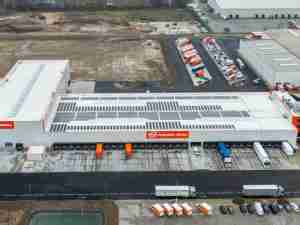By Peter A. Buxbaum, AJOT
The trend in unmistakable: in recent years more and more asset-based carriers have made the move into the freight forwarding and customs brokerage space. What effect is this having on traditional intermediary businesses?
Transportation behemoths that claim to offer end-to-end global logistics services have the potential to eat away at the market share of the mom-and-pop forwarder. But most of the intermediaries the AJOT spoke to felt that there is ample room in the marketplace for the services they provide-at least for now.
Freight forwarder acquisitions by the likes of FedEx and UPS in recent years exemplify the trend for providers of transportation services to broaden their portfolio of offerings. FedEx acquired The Tower Group in 2001 to give it customs clearance and forwarding capabilities, while UPS, acquired forwarding giant Fritz International that same year in order to be able, as UPS put it at the time, "to move all kinds of freight, by any mode of transportation, anywhere in the world." The Tower Group is now part of a subsidiary called FedEx Trade Networks Inc., which also includes customs brokerage and air freight forwarding units. The Fritz acquisition provided UPS with global freight forwarding capabilities, as well as customs brokerage, intermodal transfer, and duty drawback services, consulting on tax, trade and tariff matters, and market research and training.
Nor are FedEx and UPS alone in this trend. Ocean carriers have gotten into the act, too. APL Ltd. has its freight forwarding arm, Maersk offers customs brokerage out of a unit in Kansas City, and MOL has its MOL Logistics (USA) Inc. based in Hawthorne, CA.
At least a couple of reasons underlie these moves. One is that carriers calculate they can grab extra market share by offering to manage companies' complete logistics chains. A second is that non-asset businesses boast higher profit margins than bulky, asset-based operations, thus beefing up the carriers' bottom lines.
Indeed, FedEx and UPS have gotten to the point where they are at the forefront of expanding the rights of intermediaries. Their petitions, along with those by other carriers such as BAX and C.H. Robinson, among others, before the Federal Maritime Commission, led that agency to relax rules with regard to tariff filing by non-vessel operating common carriers and to allow intermediaries to enter into confidential service agreements with customers under some circumstances, much as do vessel operators.
One-stop shopping
The danger to traditional forwarders obviously, is that carriers will be honing in on their long-standing customers. "It would be a direct conflict," said Michelle Pluta of ABX Logistics USA in Atlanta. "The carriers would try to sell our customers directly and that it would be a problem for us."
The value proposition represented by the integrated offerings is to streamline the freight management process. John McGowan, a consultant at Sandler Travis Trade advisory Services in Washington, pointed out that freight forwarders and customs brokers have improved their services by combining their operations, allowing shippers to receive one-stop shopping. The same could be brought about by the combination of transportation with ancillary services like freight forwarding, customs brokerage, and information management.
"What this means is that you have a more integrated operation," he said. "Intermodalism will benefit from a company that can better straddle the gap. A company that is sensitive to these operational requirements from a freight movement or a processes integration point of view has to be able to provide smoother and better services, and that has to be beneficial. It might be more efficient if freight forwarders had a direct relationship with ocean carriers. It could give them an advantage in the marketplace."
But, McGowan added, the marketplace will be the ultimate arbiter as to whether these integrated offerings are good idea. "Shippers want int





_-_28de80_-_d88095865f9f1cbb4ecdd37edf61c63efd603428_lqip.png)

